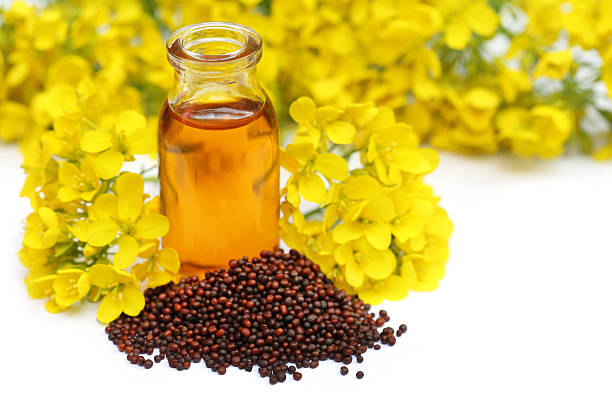
Mustard Seed Oil - 1206
Mustard Seed Oil: The Golden Elixir from India
Mustard seed oil, known for its distinct pungent aroma and rich flavor, holds a special place in both Indian cuisine and traditional medicine. As an essential product of India’s agricultural sector, mustard seed oil has gained prominence in international markets due to its versatile culinary uses and numerous health benefits. This article delves into the origin, varieties, quality, and global appeal of mustard seed oil from the perspective of an Indian exporter.
Origin and Production: A Rich Heritage
Historical Significance
Mustard seed oil has been a staple in Indian households for centuries, used extensively in cooking, medicinal remedies, and religious rituals.
- Ancient Roots: The use of mustard seeds and their oil dates back to ancient civilizations in the Indus Valley, where they were prized for their flavor and therapeutic properties.
- Cultural Importance: In Indian culture, mustard oil is often used in traditional ceremonies and Ayurvedic practices, reflecting its deep-rooted significance.
Production Regions
Mustard seeds are primarily grown in the northern and eastern regions of India, including Rajasthan, Uttar Pradesh, Haryana, West Bengal, and Bihar. These regions offer the ideal climatic conditions and fertile soil for mustard cultivation.
- Traditional Methods: Mustard seeds are traditionally cold-pressed to extract oil, preserving its natural flavor and nutrients.
- Modern Techniques: Contemporary production also includes refined methods to cater to different consumer preferences, although cold-pressed oil remains highly valued for its health benefits.
Varieties of Mustard Seed Oil
Mustard seed oil comes in different varieties, each catering to specific culinary and health needs.
- Cold-Pressed Mustard Oil: Extracted through traditional cold-press methods, this variety retains most of its natural nutrients and has a robust, pungent flavor. It is ideal for traditional Indian cooking and medicinal uses.
- Refined Mustard Oil: This variety undergoes refining processes to remove impurities and reduce its strong aroma. It has a milder flavor, making it suitable for frying, sautéing, and other high-heat cooking methods.
- Organic Mustard Oil: Produced from organically grown mustard seeds without the use of synthetic pesticides or fertilizers, this oil caters to the health-conscious market.
Quality of Mustard Seed Oil: Ensuring Excellence
Maintaining high quality is crucial for mustard seed oil, especially when targeting international markets.
Factors Influencing Quality
- Seed Quality: The oil quality is significantly influenced by the quality of the mustard seeds used. Fresh, mature seeds yield oil with superior flavor and nutritional content.
- Extraction Method: Cold-pressing preserves the natural compounds and nutrients of the mustard seeds, resulting in a higher quality oil compared to those extracted using heat or chemicals.
- Storage Conditions: Proper storage in airtight containers, away from light and heat, helps maintain the oil’s quality and extends its shelf life.
Quality Control Measures
- Regular Testing: Ensuring that the oil is free from contaminants such as heavy metals and pesticides is essential. Regular testing and adherence to international food safety standards are necessary.
- Certifications: Obtaining certifications such as ISO, HACCP, and organic certifications enhances the oil’s marketability and consumer trust.
Nutritional and Health Benefits: A Treasure Trove of Wellness
Mustard seed oil is not only a culinary delight but also offers numerous health benefits.
- Rich in Monounsaturated Fats: Mustard oil is high in monounsaturated fats, which are heart-healthy fats that help lower bad cholesterol levels.
- Antibacterial and Antifungal Properties: The oil contains natural compounds such as allyl isothiocyanate that have antibacterial and antifungal properties, helping protect against infections.
- Antioxidant Properties: Mustard oil is rich in antioxidants like vitamin E, which protect the body from oxidative stress and inflammation.
- Digestive Aid: It can stimulate the digestive system and increase appetite, making it beneficial for digestive health.
- Anti-inflammatory Benefits: Used in traditional Ayurvedic practices, mustard oil is known for its anti-inflammatory properties and is often used for massages to relieve muscle pain and arthritis.
